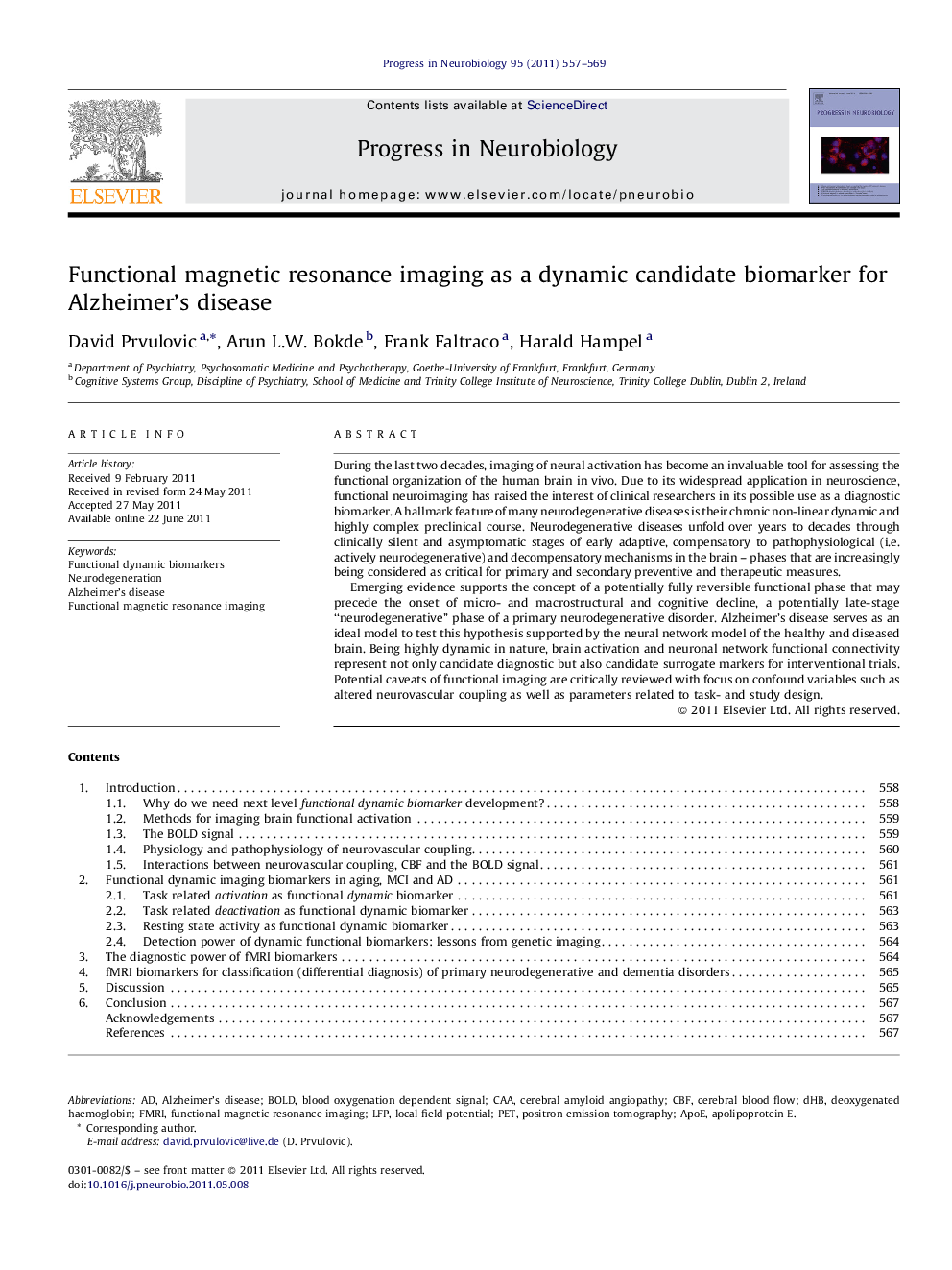| Article ID | Journal | Published Year | Pages | File Type |
|---|---|---|---|---|
| 4353501 | Progress in Neurobiology | 2011 | 13 Pages |
During the last two decades, imaging of neural activation has become an invaluable tool for assessing the functional organization of the human brain in vivo. Due to its widespread application in neuroscience, functional neuroimaging has raised the interest of clinical researchers in its possible use as a diagnostic biomarker. A hallmark feature of many neurodegenerative diseases is their chronic non-linear dynamic and highly complex preclinical course. Neurodegenerative diseases unfold over years to decades through clinically silent and asymptomatic stages of early adaptive, compensatory to pathophysiological (i.e. actively neurodegenerative) and decompensatory mechanisms in the brain – phases that are increasingly being considered as critical for primary and secondary preventive and therapeutic measures.Emerging evidence supports the concept of a potentially fully reversible functional phase that may precede the onset of micro- and macrostructural and cognitive decline, a potentially late-stage “neurodegenerative” phase of a primary neurodegenerative disorder. Alzheimer's disease serves as an ideal model to test this hypothesis supported by the neural network model of the healthy and diseased brain. Being highly dynamic in nature, brain activation and neuronal network functional connectivity represent not only candidate diagnostic but also candidate surrogate markers for interventional trials. Potential caveats of functional imaging are critically reviewed with focus on confound variables such as altered neurovascular coupling as well as parameters related to task- and study design.
► Functional neuroimaging captures non-linear states of brain function. ► Functional dynamic markers of default mode and memory networks show promising diagnostic accuracy in the detection of AD. ► Functional dynamic biomarkers are promising candidate surrogate markers and might improve rapid compound labelling in AD in early drug development stages. ► Validation of functional dynamic biomarkers as diagnostic and surrogate markers in large multicenter studies are required.
